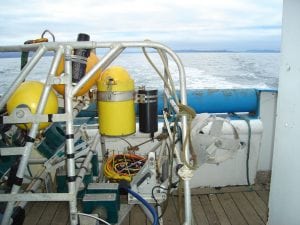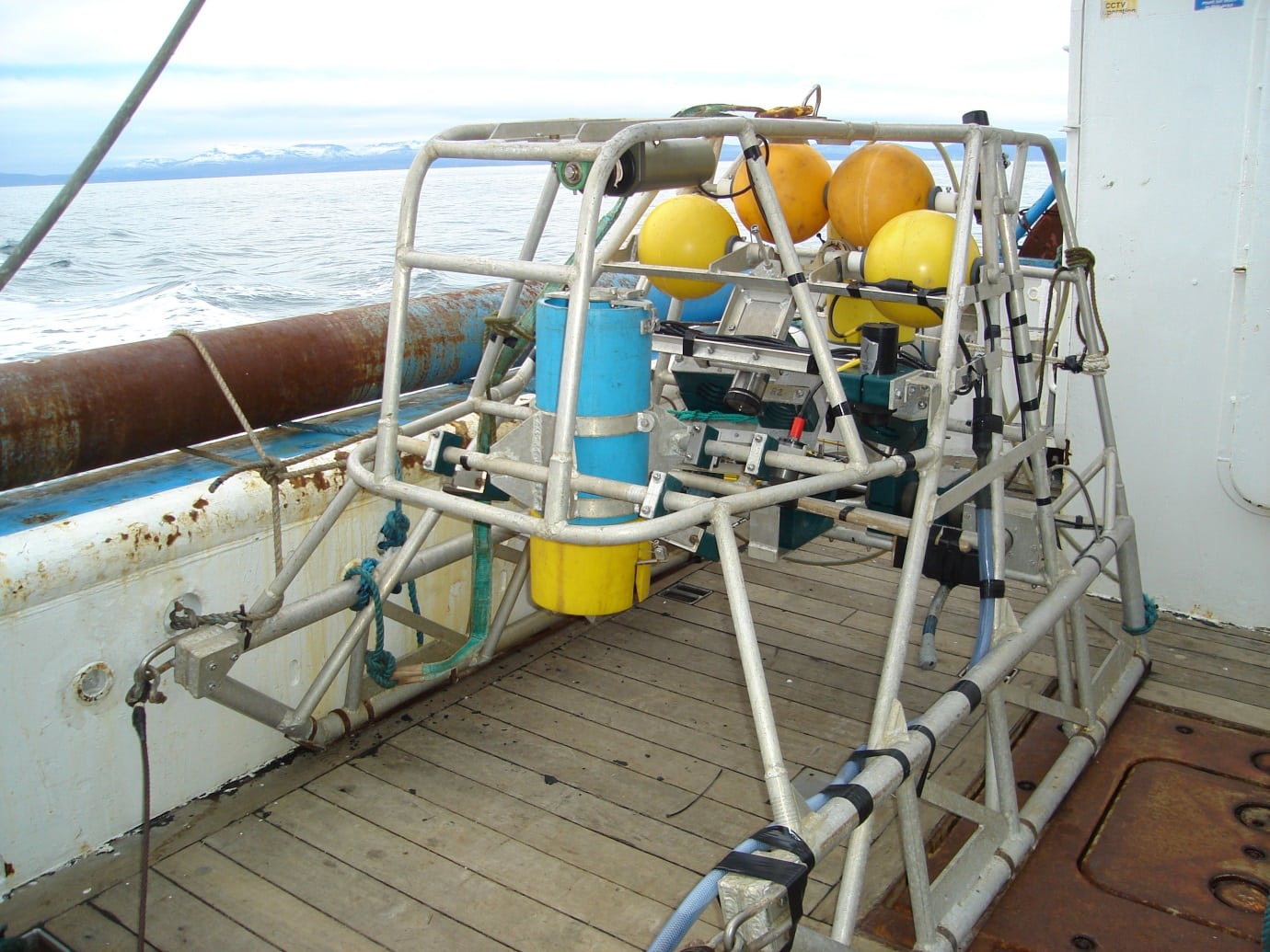Marine
Celebrating the Year of the Engineer – a sledge isn’t just for Christmas
March 6, 2018 by Marine Scotland Communications No Comments | Category Marine Directorate Science, Year of the Engineer
For many years, Marine Scotland scientists and engineers have designed, built and deployed towed underwater TV sledges to view the sea bed. These sledges provide a relatively stable platform to study a variety of species and monitor various underwater sites.
With experience, the design used in nephrops work has evolved and along with a forward facing camera and LED lights, the current model has an odometer wheel to measure the distance the sledge has travelled, an altimeter to measure essential data relating to sledge position on the sea bed and a rear camera for quality control purposes.
 A small van Veen grab (a clamshell bucket made out of stainless steel) at the front of the sledge enables scientists to collect mud samples at the end of a tow. This has been an invaluable addition, as previously this was carried out using a Day grab (two stainless steel bucket sections mounted within a stainless steel frame that ensured the grab was square and level to the seabed when it is deployed). This simple design has saved many hours of ship’s time as there is now no need to stop the vessel to collect the mud sample, and provides a more accurate sample relative to the location of the survey site
A small van Veen grab (a clamshell bucket made out of stainless steel) at the front of the sledge enables scientists to collect mud samples at the end of a tow. This has been an invaluable addition, as previously this was carried out using a Day grab (two stainless steel bucket sections mounted within a stainless steel frame that ensured the grab was square and level to the seabed when it is deployed). This simple design has saved many hours of ship’s time as there is now no need to stop the vessel to collect the mud sample, and provides a more accurate sample relative to the location of the survey site
In the unlikely event of the umbilical becoming detached from the sledge, MSS engineers have designed a “pop-up” device which will bring a float attached to Dyneema® rope to the surface. On retrieval of this line, the ship will be able to lift the sledge back on board the vessel.
Since 1992, the MSS TV sledge has been collecting underwater footage for Nephrops stock assessment purposes. There are currently 11 other countries within the International Council for the Exploration of the Sea (ICES) who also use a similar method to provide this indispensable data.
Further Information
- Marine Scotland Science (MSS) nephrops surveys
- International Council for the Exploration of the Sea (ICES)
Tags: marine science, plankton sampling, samplers, sampling



Leave a comment